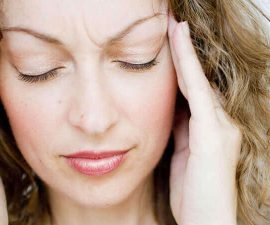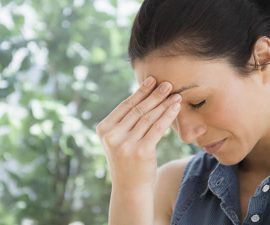… Continued …
It can affect anyone. But some people are at higher risk than others to develop this infection. In general, your risk is higher if you have some of the following risk factors:
- If you have any condition that interfere with the function of cilia. If your cilia don’t work properly, the mucus will not drain into the nose as well as usual.
- Allergies, such as hay fever or allergic rhinitis.
- Cystic fibrosis, an inherited-genetic disorder that can affect cells that produce mucus.
- Poor function of the body immune system. If your immune system is weak, you’re vulnerable to develop infection such as sinus infection.
- In some people, smoking may also increase the risk of sinusitis.
Why is sinus infection worse at night?
Getting adequate rest is important to cope with any health condition (because your sleep can help a lot to boost your recovery). But unfortunately, it’s not always easy if you have sinusitis.
Even the symptoms can flare up more at night. Many people with sinusitis find that getting enough sleep at night can be the hardest thing to do!
There are several reasons of why the problem tends to get worse at night. The main ones are outlined below.
Gravity
If you have sinus infection, gravity can be one of the most challenging things at night.
The mucus produced by sinuses drain out into the nose, particularly true when you’re sitting or standing upright during the day. It will clear up through your airways when you swallow or blow your nose, and you can breathe easily.
But at night, when you lie down for sleep, you can have more gravitational pull. And the mucus flow doesn’t clear in the same way. The gravity can make it lodge in the airways and collect at the back of the throat.
Therefore, it’s recommended to sleep with the head elevated. For example, sleeping with a pillow /bolster propping your head up a little may help.
Allergies
As mentioned before, some people with allergies are relatively more vulnerable to have sinus infection. And if they do develop sinusitis, it can be more challenging.
Sinusitis with allergies is more difficult to cope than if you don’t have allergies. For example with nasal allergies – symptoms such as mucus formation, cough, nasal congestion, or runny nose can be much worse at night.
If your allergy does bother you a lot, ask your doctor whether particular medicine is required. Some people find that taking antihistamine before bed is helpful to ease their runny nose.
The more active of immune system
The body immune system plays a key role to help fight the infection. People with a weak immune system are more vulnerable to have sinus infection.
But while we should respect to the immune system function for doing its job, it also could be a bit frustrating when it is more active at night (making the inflammatory response increases). As a result, this may contribute to worsen the sinusitis symptoms such as headache and congested nose.
A dry, bad indoor air
If you sleep with dry air, this can be another reason to blame. For example, many people with sinusitis find that the symptoms get worse with extreme humidity. Why dry air is bad for sinusitis?




